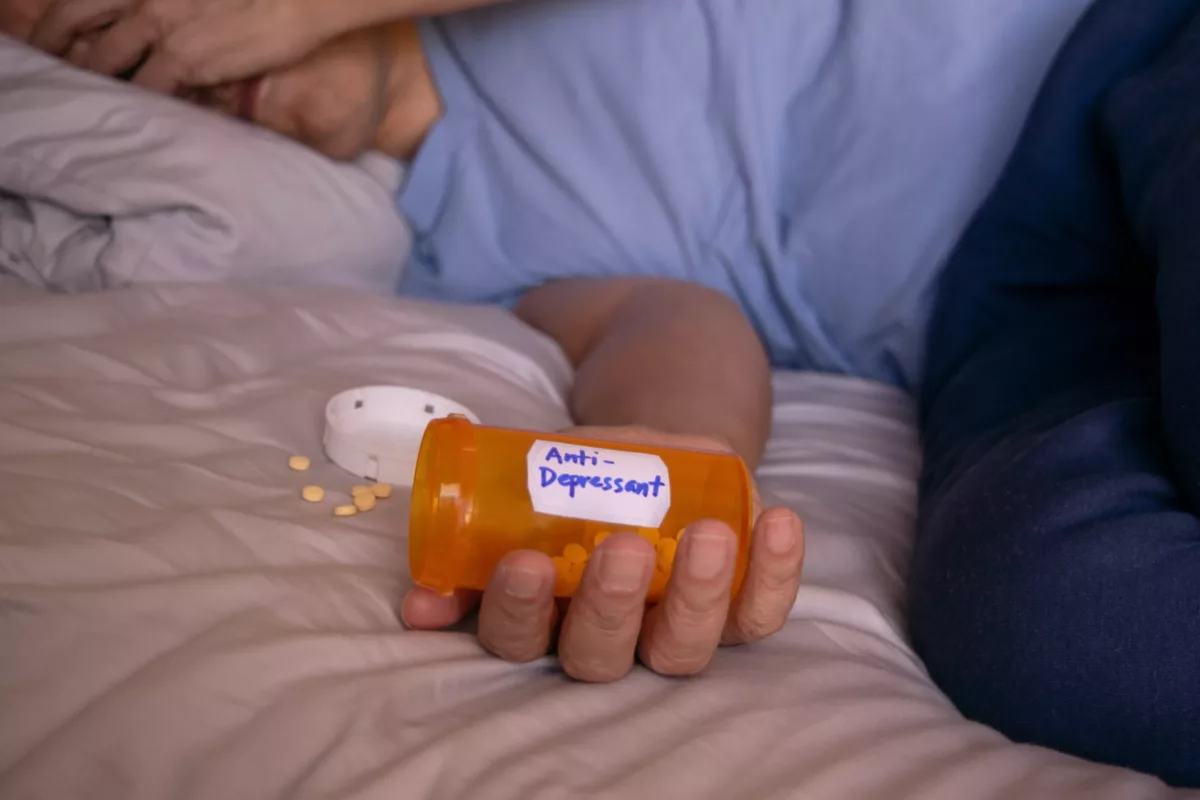A long-term and continuous depression form is called a persistent depressive disorder. When it occurs, people usually feel sad and empty, lose interest in activities once enjoyed, and may have problems with getting things done. Sometimes, they also may experience low self-esteem and feel hopeless. When the condition occurs, previous symptoms may last for years and often affect relationships, school, work, and daily routine.
Those who suffer from this depression type find it difficult to be upbeat even on good or happy occasions. While persistent depressive disorder is not as severe as major depression, the symptoms that it causes also range from mild to severe. In any case, it is quite difficult to overcome symptoms because it happens for long periods.
In most cases, physicians recommend medicines and talk therapy (also called psychotherapy) to treat this depression type.
Symptoms
The symptoms caused by persistent depressive disorder usually come and go through the years. While the intensity of the symptoms changes over time, in some cases, they may last up to 2 months. Check below some symptoms that usually occur in people with persistent depressive disorder:
- Sadness
- Emptiness
- Loss of interest in activities once enjoyed
- Difficulty focusing, getting things done, and making decisions
- Poor appetite or overeating
- Sleeping disturbances (insomnia)
- Hopelessness
- A feeling of guilt and worry
- Lack of energy
- Tiredness
- People with this mental disorder may become angry, impatient, or annoyed quite fast
- Self-criticism
- Low self-esteem
It is advised to seek medical help if any of the symptoms listed above occur. Moreover, go to the nearest emergency room or call 911 in the U.S. if you think you may hurt yourself or experience suicidal thoughts or behavior.
Causes
Unfortunately, what exactly causes the disease is not known. Experts believe it occurs due to a combination of factors. For example:
- Biological differences – Usually, people with persistent depressive disorder have certain changes in their brains. Experts do not fully understand why these changes happen but they may help identify the causes.
- Brain chemistry – Some studies suggest that neurotransmitters that occur naturally in the brain play the biggest role in this mental disorder.
- Inherited traits – This depression type tends to occur more commonly in people with a family history of the condition. Nowadays, researchers try to identify genes that contribute to persistent depressive disorder.
- Life events – Persistent depressive disorder and major depression are often associated with traumatic events (such as the loss of a loved person, financial problems, or stress).
Risk Factors
While the exact cause of the disease is not known, physicians identified some factors that could elevate your risk of developing it. Check below some of them:
- Family history of major depressive disorder or other depression types
- Stressful and traumatic life events (including death of a loved person, financial problems, and others)
- Personality traits (such as negativity, low self-esteem, being too self-critical, and others)
- Previous mental health disorders (including personality disorders, major depression, and others)
What Are The Potential Complications of Persistent Depressive Disorder?
People with this mental disorder may experience some complications, especially if they do not get treatment. Check below some examples:
- Reduced quality of life
- Alcohol or illegal drug misuse
- Family conflicts or difficulties in relationships
- Problems at work or school
- Persistent pain and other chronic health conditions
- Suicidal thoughts or behavior
- Personality disorders
- Other mental disorders (such as anxiety disorder)
This article does not contain all possible complications of persistent depressive disorder. Consult with your doctor about ways to reduce the risk or prevent complications of this depression type.
How to Prevent Persistent Depressive Disorder?
There are no sure ways to prevent this depression type because it usually begins in the childhood or teenage years. Check below some tips that may help reduce the risk of developing persistent depressive disorder:
- Manage stress that may help boost your self-esteem.
- Reach out to friends and family that may help cope with symptoms, especially in times of crisis.
- It is advised to visit a doctor for diagnosis and treatment at the earliest symptom or sign of a problem. Therefore, it reduces the chances of worsening the condition or complications.
- Carefully follow the treatment prescribed by your doctor to prevent symptoms relapse.
Diagnosis
When physicians suspect persistent depressive disorder, they may perform the following tests to confirm the condition and exclude others that may cause similar symptoms. For example:
- A physical examination – During this examination, they will ask some questions to check for abnormalities linked with persistent depressive disorder. Sometimes, it is linked with another mental health problem.
- Laboratory tests – These tests are usually done to exclude other diseases that cause similar symptoms to persistent depressive disorder. In most cases, physicians perform blood tests to check for abnormalities such as hypothyroidism (underactive thyroid gland) and others.
- Psychological evaluation – This procedure involves discussions about your feelings, thoughts, and behavior, which usually includes completing a questionnaire. This evaluation can be used to diagnose other mental disorders including major depression, bipolar disorder, seasonal affective disorder, and others.
Treatment
Generally, physicians use two methods to treat this depression type. For example medications and psychotherapy (also known as talk therapy). However, the treatment still can be different among people because it depends on several factors. These include the severity and duration of the symptoms, previous treatments, existing emotional problems, your age and preferences, and others.
However, the primary treatment is usually talk therapy, especially for children and teenagers.
Medicines
In most cases, physicians prescribe the following medicines for people with persistent depressive disorder. Examples include:
- Tricyclic antidepressants (TCAs)
- Selective serotonin reuptake inhibitors (SSRIs)
- Serotonin and Norepinephrine reuptake inhibitors (SNRIs)
Furthermore, not every time it is possible to find the right medicine. Therefore, it may require taking a combination of medicines or waiting several weeks to check if the prescribed medicines work. In any case, you should not interrupt taking antidepressants without your doctor’s approval because it may lead to quick worsening of the condition or serious withdrawal-like symptoms.
Psychotherapy
This therapy involves discussions with your mental health professional about your thoughts, feelings, behavior, relationships, and others in order to treat persistent depressive disorder. The most common type of talk therapy used to treat this depression type is cognitive behavioral therapy. This treatment may help you:
- Adjust to difficulties
- Determine problems that contribute to your condition
- Replace negative behaviors and beliefs with healthy ones
- Learn specific techniques to overcome symptoms
- Recover the ability to control your life that may help lessen depression symptoms (including anger, hopelessness, and others)
Frequently Asked Questions
What are the main symptoms of persistent depressive disorder?
If you notice any of the following symptoms, immediately visit a doctor for help. Examples include:
- Sleep disturbances
- Difficulty focusing, making decisions, and concentrating
- Irritability
- Hopelessness
- Reduced energy levels
- Loss of interest in activities once enjoyed
In addition, symptoms caused by this depression type usually last long periods.
What are the most effective treatment options for people with persistent depressive disorder?
In most cases, doctors treat this condition with medicines and psychotherapy (also called talk therapy). However, they also may recommend lifestyle changes (such as regular physical exercise, dietary changes, healthy sleep cycles, and others).
What are persistent depressive disorder complications?
Without treatment, this mental disorder may cause multiple complications. For example:
- Social isolation
- Self-harm
- Reduced quality of life
- Suicidal thoughts or even behavior
- Physical health conditions (including chronic pain, diabetes, heart disease, and others)
- Relationship, school, or work problems
- Other mental disorders (such as substance misuse, anxiety disorder, and others)
Ask your healthcare provider if you have any other questions.




